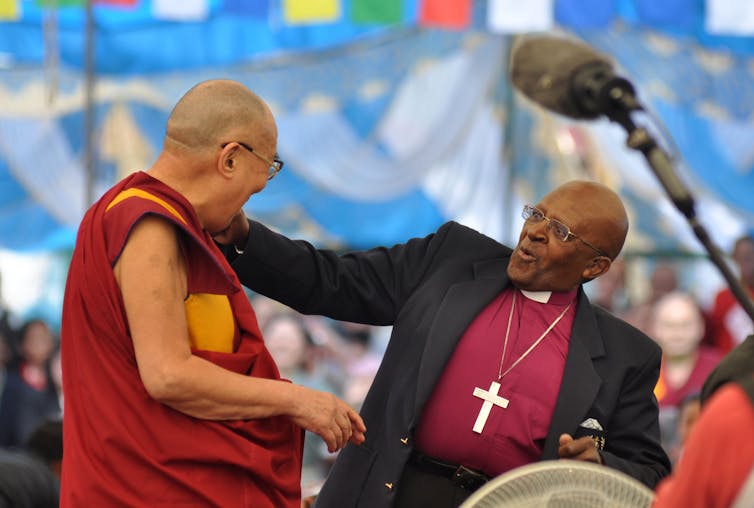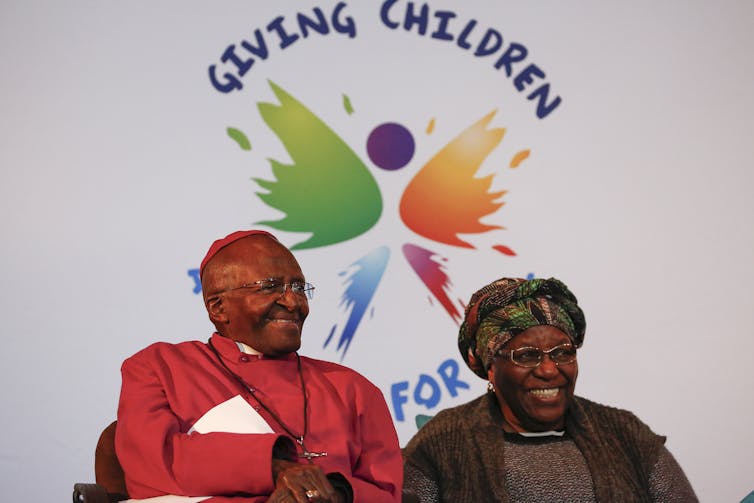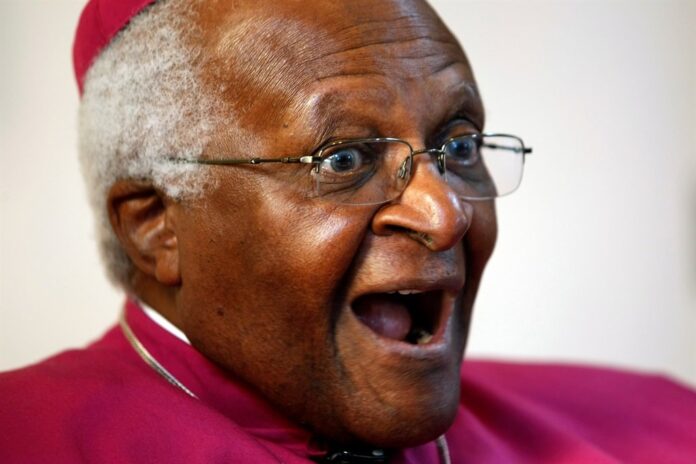Archbishop Emeritus Desmond Mpilo Tutu died on December 26th at the age of 90.
Archbishop Tutu earned the respect and love of millions of South Africans and the world. He carved out a permanent place in their hearts and minds, becoming known affectionately as “The Arch”.
When South Africans woke up on the morning of 7 April, 2017 to protest against then President Jacob Zuma’s removal of the respected Finance Minister Pravin Gordhan, Archbishop Tutu left his Hermanus retirement home to join the protests. He was 86 years old at the time, and his health was frail. But protest was in his blood. In his view, no government was legitimate unless it represented all its people well.
There was still that sharpness in his words when he said that
We will pray for the downfall of a government that misrepresents us.
These words echoed his stance of ethical and moral integrity as well as human dignity. It is on these principles that he had fought valiantly against the system of apartheid and became, as the Desmond Tutu Foundation rightly affirms,
an outspoken defender of human rights and campaigner for the oppressed.
But Archbishop Tutu didn’t stop his fight for human rights once apartheid came to a formal end in 1994. He continued to speak critically against politicians who abused their power. He also added his weight to various causes, including HIV/AIDS, poverty, racism, homophobia and transphobia.
His fight for human rights wasn’t limited to South Africa. Through his peace foundation, which he formed in 2015, he extended his vision for a peaceful world “in which everyone values human dignity and our interconnectedness”.

He also became relentless in his support for the Dalai Lama, whom he considered his best friend. He condemned the South African government for refusing the exiled Tibetan spiritual leader a visa to deliver the “Desmond Tutu International Peace Lecture” in 2011.
4. Early years
Archbishop Tutu came from humble beginnings. Born on 7 October, 1931 in Klerksdorp, in the North West Province of South Africa where his father, Zachariah was a headmaster of a high school. His mother, Aletha Matlare, was a domestic worker.
One of the most influential figures in his early years was Father Trevor Huddleston, a fierce campaigner against apartheid. Their friendship led to the young Tutu being introduced into the Anglican Church.
After completing his education he had a brief stint teaching English and History at Madibane High School in Soweto; and then at Krugersdorp High School , west of Johannesburg; where his father was a headmaster. It was here that he met his future wife, Nomalizo Leah Shenxane.
It is interesting that he agreed to a Roman Catholic wedding ceremony, although he was Anglican. This ecumenical act at the very early stage in his life gives us a hint of his commitment to ecumenical work in later years.
He quit teaching in the wake of the introduction of the inferior “Bantu education” for black people in 1953. Under the Bantu Education Act, 1953, the education of the native African population was limited to producing an unskilled work force.
In 1955 Tutu entered the service of the church as a sub-deacon. He got married the same year. He enrolled for theological education in 1958 and, after completing his studies, was ordained as a deacon of Saint Mary’s Cathedral in Johannesburg in 1960, and became its first black dean in 1975.
In 1962 he went to London to pursue further theological education with funding from the World Council of Churches. He earned a Master of Theology degree, and after serving in various parishes in London, returned to South Africa in 1966 to teach at the Federal Theological Seminary at Alice, Eastern Cape.
One of the lesser known facts is that he had special interest in the study of Islam. He had wanted to pursue this in his doctoral studies, but this was not to be.

The activities he was involved in in the early 1970s were to lay the foundation for his political struggle against apartheid. These included teaching in Botswana, Lesotho and Swaziland and, thereafter, a posting to London as the Associate Director for Africa at the Theological Education Fund, and his exposure to Black Theology. He also visited many African countries in the early 1970s.
He eventually returned to Johannesburg as the dean of Johannesburg and the rector of St. Mary’s Anglican Parish in 1976.























